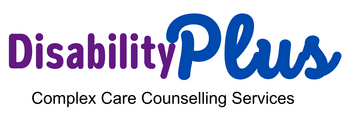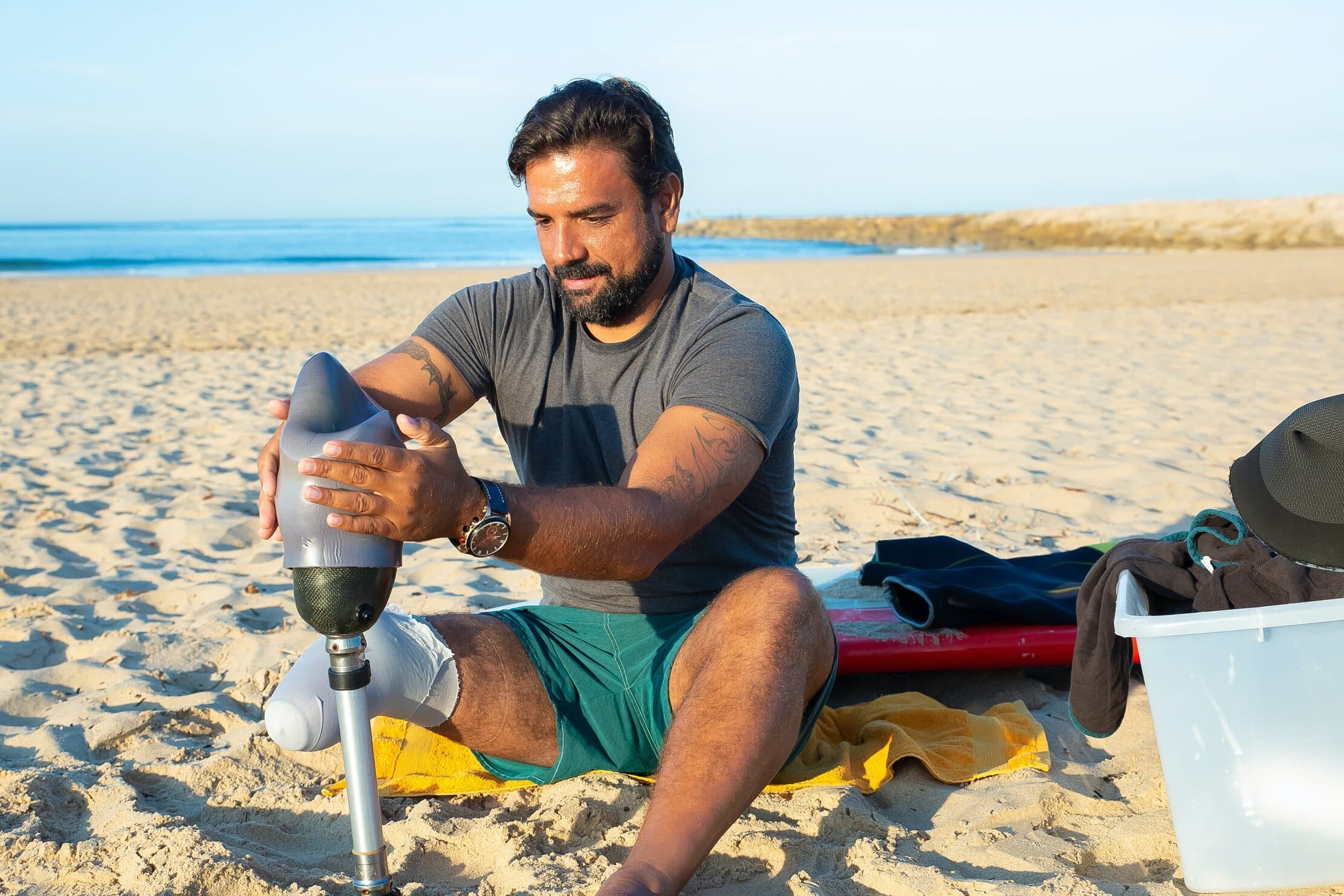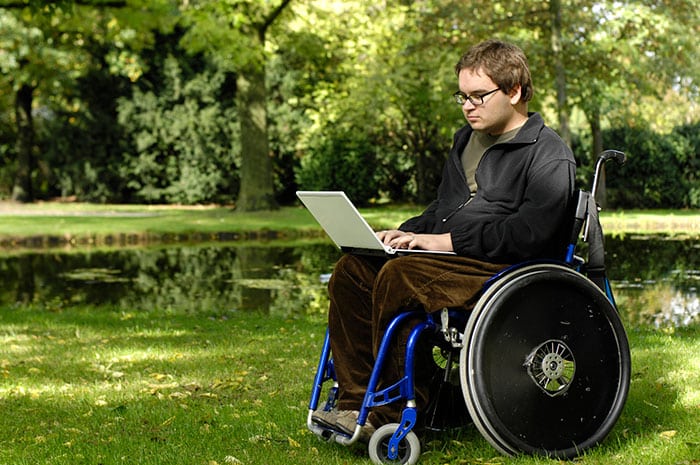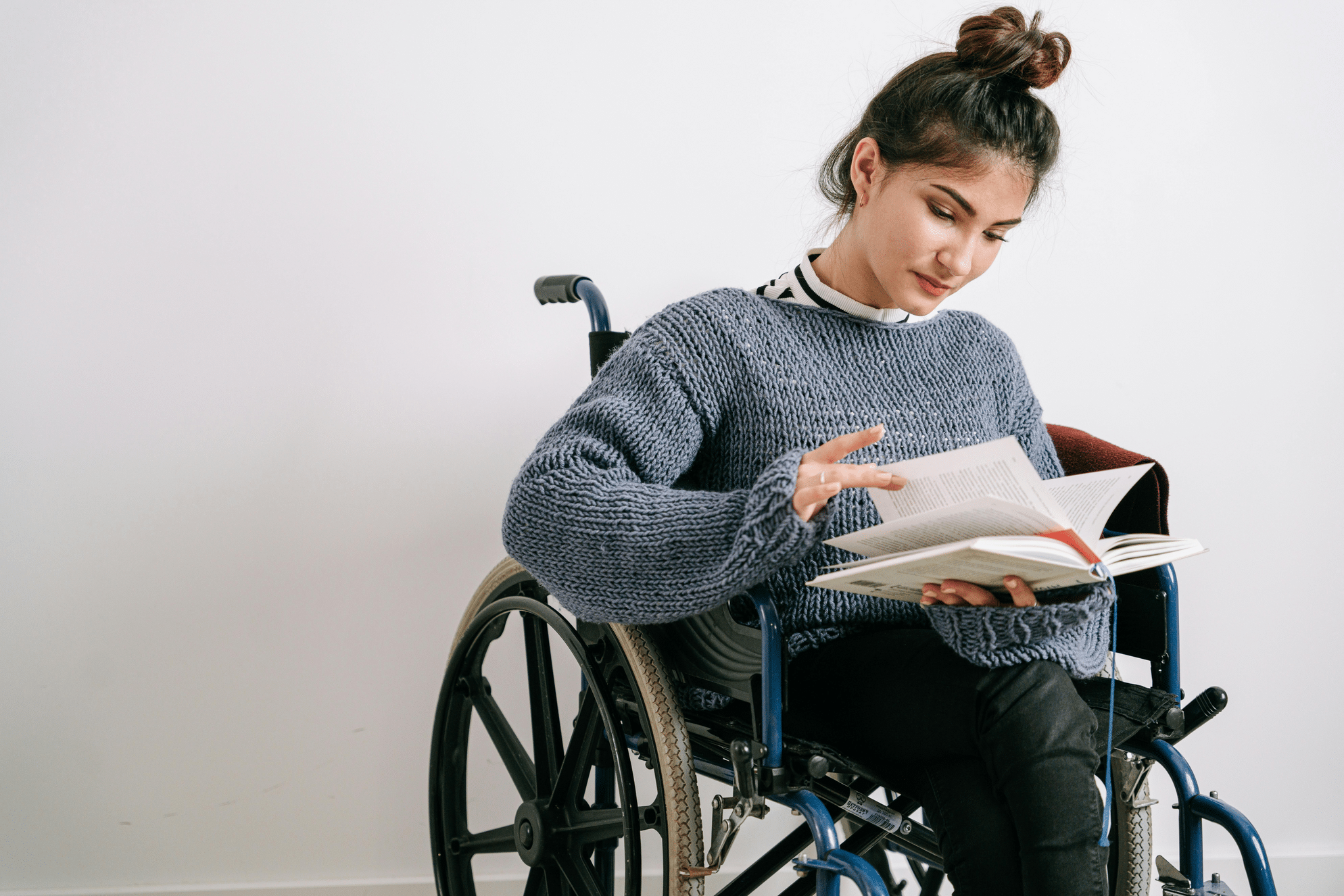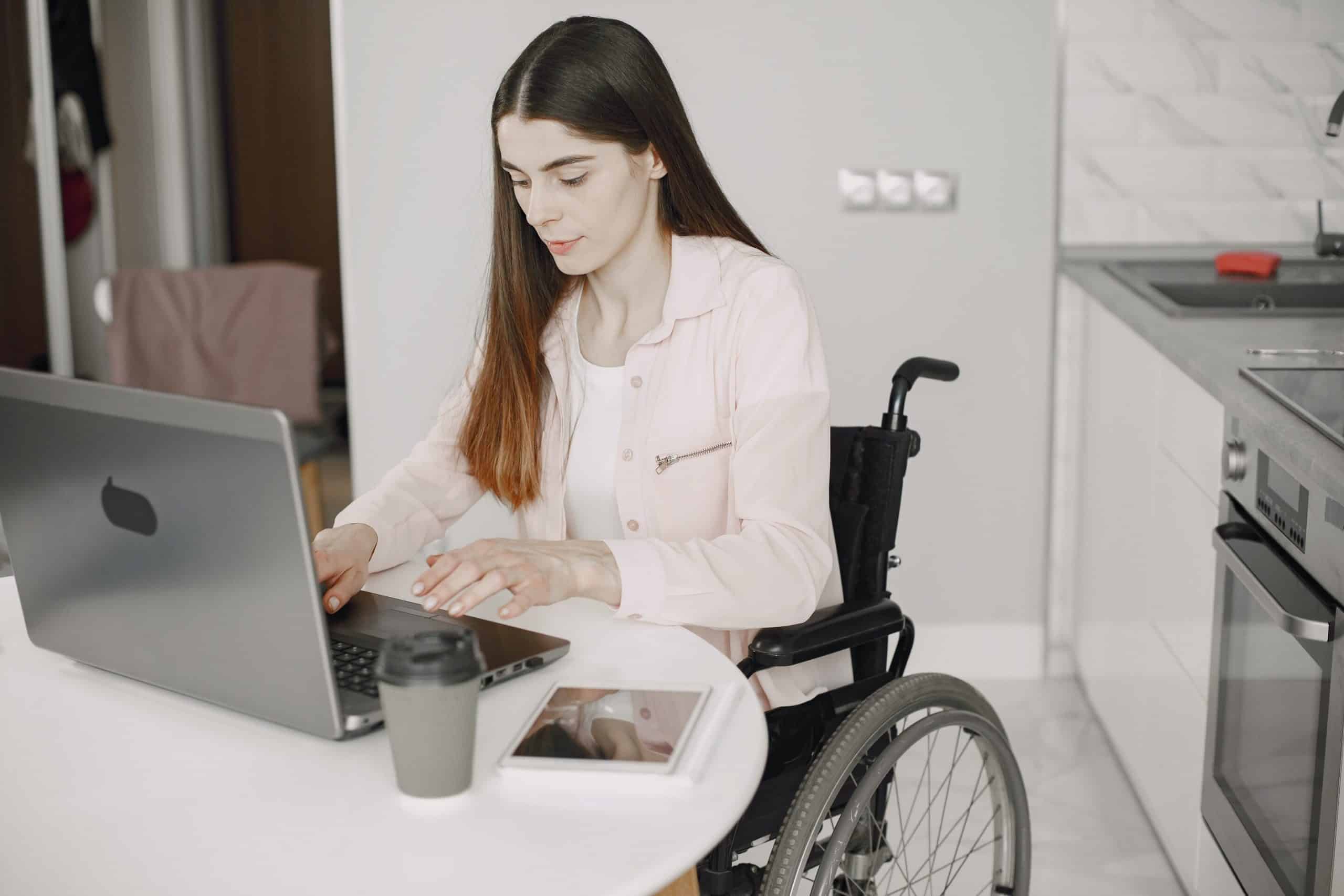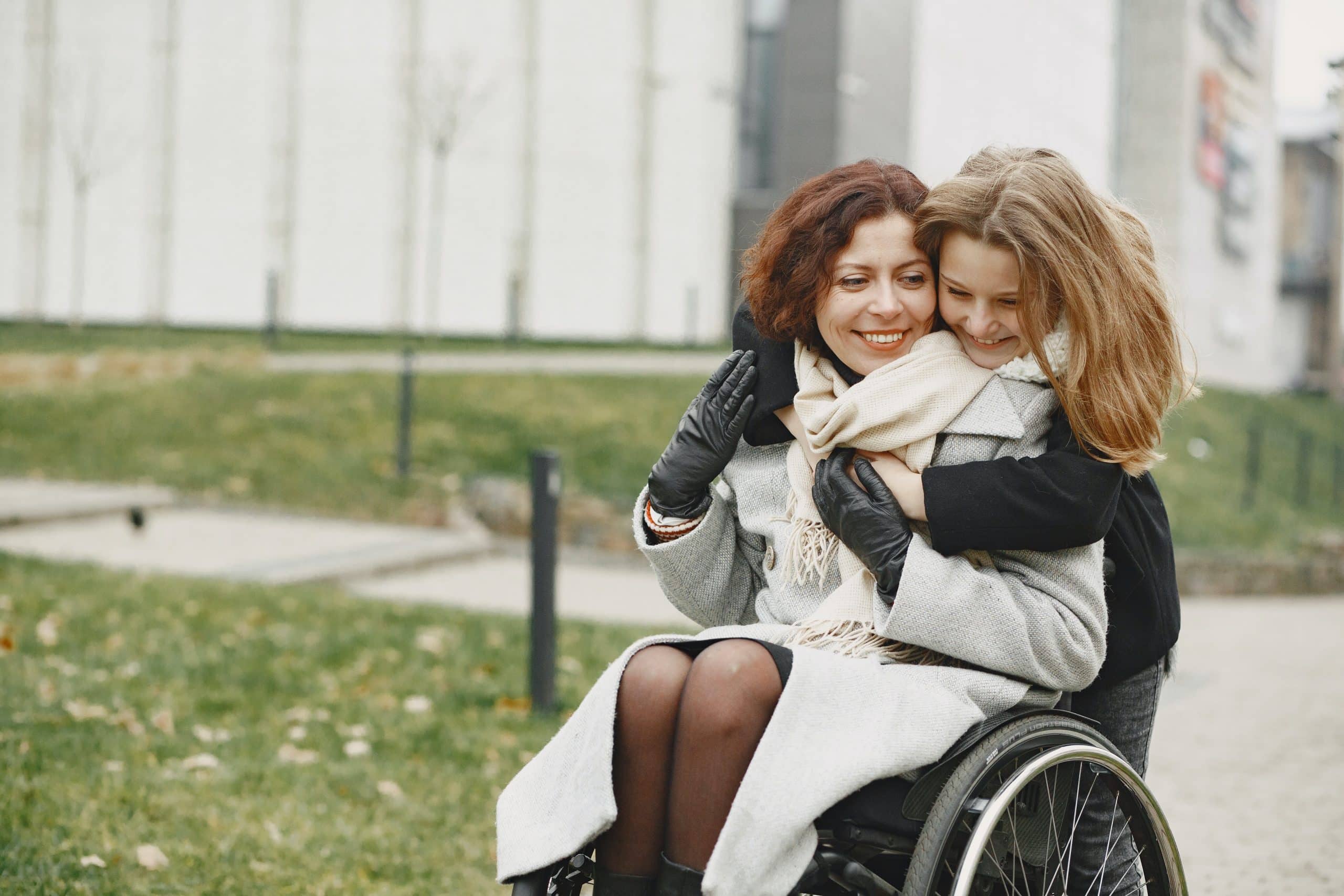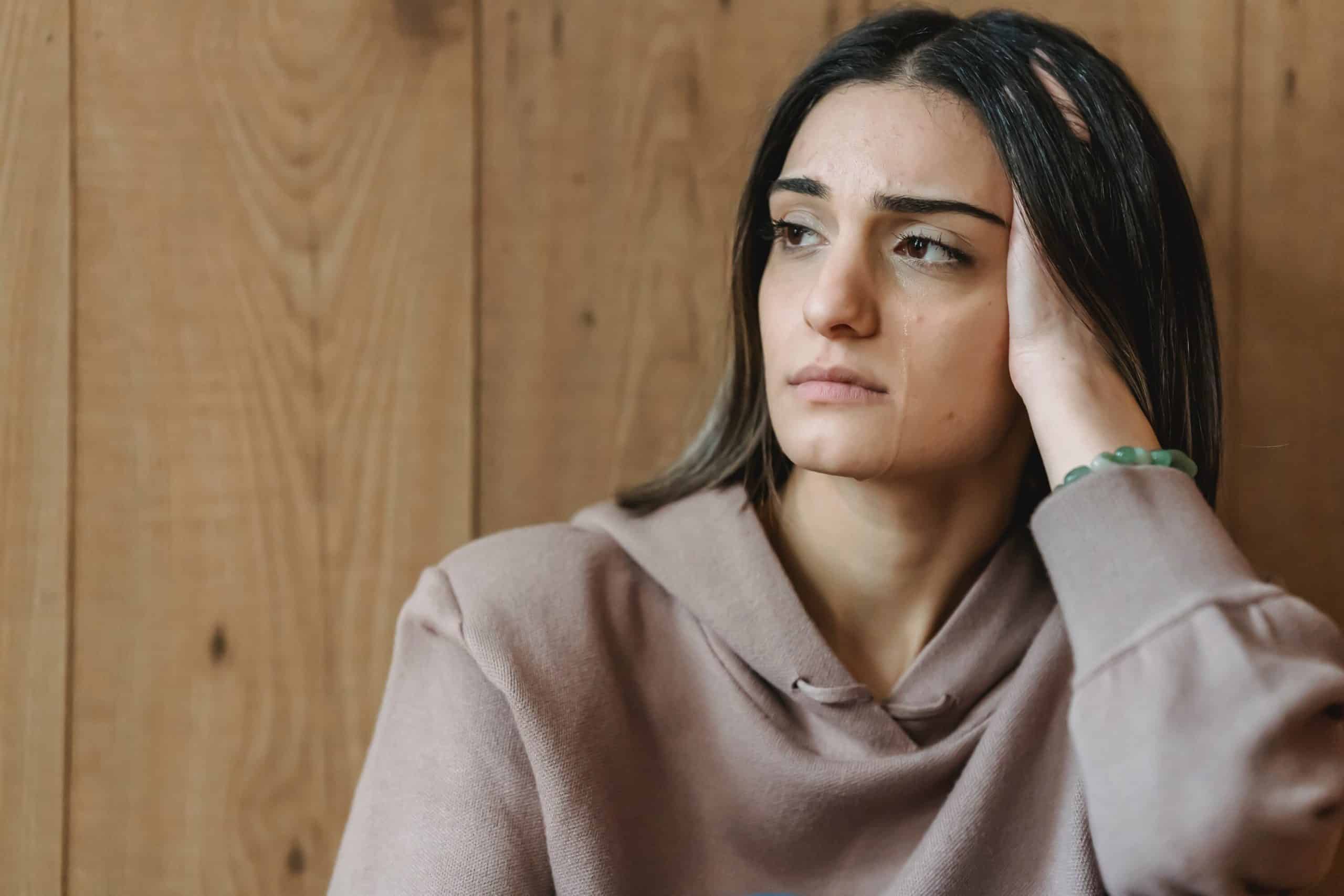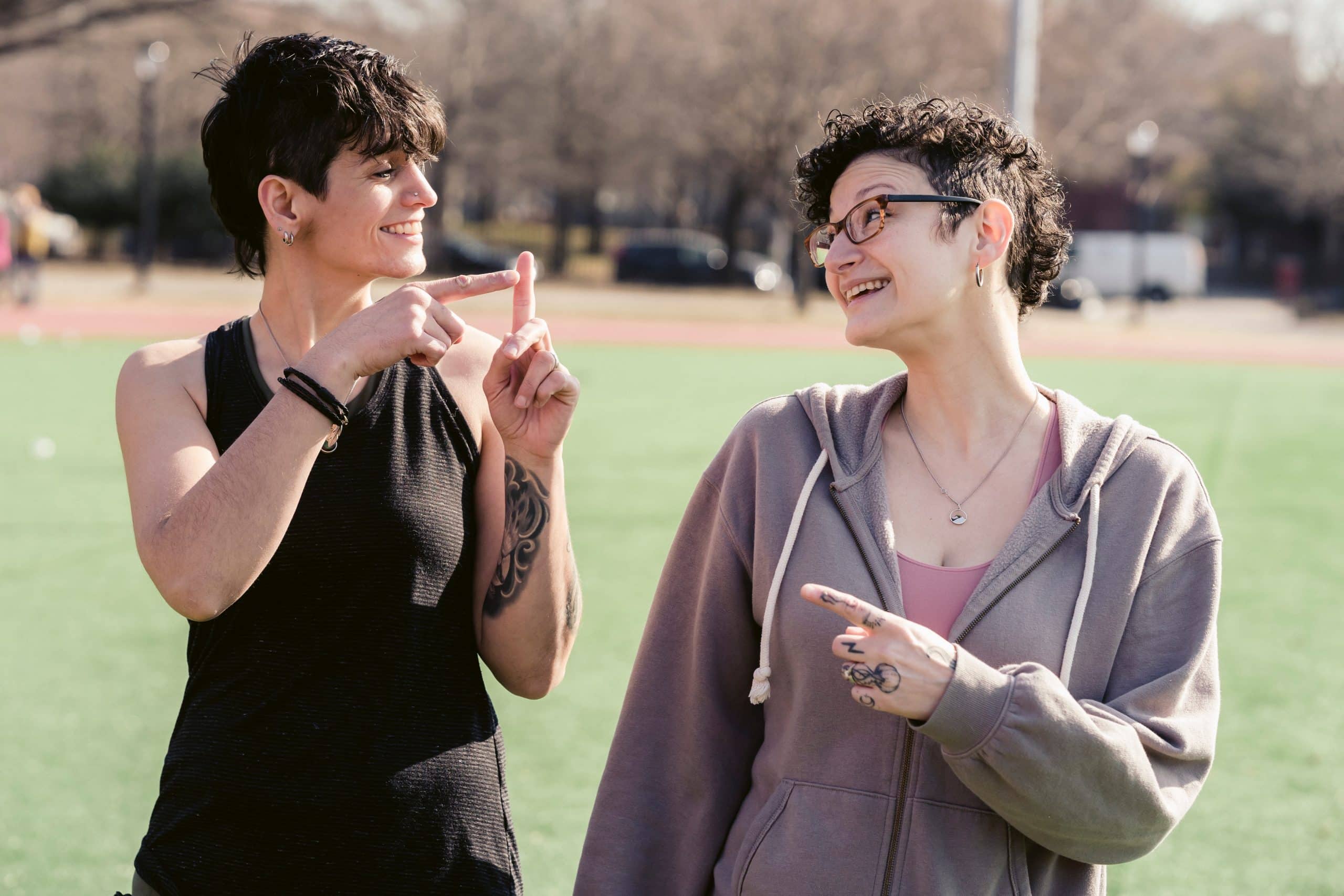Real Stories, Real Lives, Real Impact, Lived Experience Matters
Specialist Limb Loss Counselling, Therapists Amputees
Questions & Enquiries
Self-Paid Counselling Referral Form & Pricing
Free Funding Referral Form
Professional Referrals
Our Other Services
Real Stories, Real Lives, Real Impact, Lived Experience Matters
Specialist Limb Loss Counselling, Therapists Amputees
"The journey after limb loss is unique to each individual. We will help you embrace your resilience, discover new ways to thrive, and let you know that you're not alone."
Facing limb loss, whether it’s an upcoming amputation, recent surgery, or years of living as an amputee, can bring a range of emotions.
You don’t have to navigate this alone. Our limb loss counselling services are here to support you at every stage. our team of experienced counsellors who also have an amputation understands your unique challenges and is here to provide compassionate care and guidance.
Lived Experience Matters
Specialist Counselling Service, How?
Supporting Your Mental Health Issues?
Newly Acquired Limb Loss Support?
Pre-Amputation Support?
Why Choose Us?
Specialist Limb Loss Counselling (Pre & Post)
What to Expect from the Start of Counselling
From the moment you reach out, we aim to create a safe and supportive space for you. We know sharing your experiences and vulnerabilities can be difficult, so our initial sessions focus on building trust and rapport.
Support for Daily Triggers
Specialist Limb Loss Counselling can help you navigate the daily life triggers that can impact your well-being after loosing a limb. We understand that even with effective coping strategies, daily life can present challenges that stir up difficult emotions.
Our Specialist Limb Loss Counsellors
Our limb loss counsellors are qualified and registered with professional bodies and possess specialised training and experience working with individuals affected by limb loss and amputation.

Contact us if you cannot find what you are looking for
"The journey after limb loss is unique to each individual. We will help you embrace your resilience, discover new ways to thrive, and let you know that you're not alone."
Facing limb loss, whether it’s an upcoming amputation, recent surgery, or years of living as an amputee, can bring a range of emotions.
You don’t have to navigate this alone. Our limb loss counselling services are here to support you at every stage. Our team of experienced counsellors, who also have an amputation, understands your unique challenges and is here to provide compassionate care and guidance.
Lived Experience Matters
Self-Paid Referral Form & Pricing
Free-Funding Referral Form
Questions & Enquiries
Professional Referrals

What to Expect from Limb Loss Counselling
Our specialised counselling service can support you on your journey with an amputation, whether your loss is recent, anticipated, or something you’ve been living with for some time.
Living with limb loss or after an amputation brings unique challenges, and we’re here to walk alongside you, offering professional expertise and, crucially, the understanding that comes from lived experience.
From the moment you reach out, we aim to create a safe and supportive space for you. We know sharing your experiences and vulnerabilities can be difficult, so our initial sessions focus on building trust and rapport.
Our counsellors deeply understand limb loss, including the emotional and practical adjustments required. Critically, all our counsellors have experienced limb loss themselves through both medical issues and personal injuries.
They truly understand what you’re going through because they’ve been there. Their journeys offer hope and inspiration, demonstrating that a fulfilling life is possible despite the challenges.
For those anticipating or recently experienced an amputation, our counsellors without lived experience have specialised training and a deep understanding of the process, ensuring compassionate and practical support.
We’ll work together to understand your specific needs and goals, whether you are dealing with a recent limb loss, preparing for an amputation, or have been living with limb loss for years.
We’ll also take the time to learn about your background, the circumstances surrounding your limb loss or anticipated amputation, your medical history (specifically related to your limb difference or anticipated amputation), your current emotional well-being, and any challenges you’re facing.
This comprehensive assessment will allow us to create a personalised counselling plan for you.
Our approach to counselling is grounded in evidence-based practices. We use proven therapies, such as Cognitive Behavioural Therapy (CBT) and Acceptance and Commitment Therapy (ACT), to help you develop coping skills, manage your emotions effectively, and build resilience.
We’ll explore the root causes of any challenges you’re experiencing, whether it’s depression, anxiety, body image concerns, grief related to the loss or amputation (or anticipated loss), phantom limb pain, relationship difficulties, or social isolation.
We’ll also focus on practical strategies for improving your daily life. This might involve learning pain management techniques (for phantom limb pain or residual limb pain), exploring ways to maximise the use of your prosthetics or adaptive devices, developing skills to advocate for your accessibility needs, improving your communication and social skills, or supporting you in pursuing vocational or educational goals.
Drawing on their experience and specialised training, our counsellors can share practical tips and strategies and offer valuable insights and support.
One of the most powerful aspects of our service is the peer support element inherent in working with a counsellor who has experienced limb loss or amputation. They understand the nuances of living with limb loss or after an amputation in a way that others may not.
This shared understanding can be incredibly validating and can reduce feelings of isolation. Our counsellors serve as role models, demonstrating that a fulfilling life is possible despite the challenges.
A deep understanding of the limb loss journey provides similar empathy and support.
Our support doesn’t end after a few sessions. We’re here for the long haul. Ongoing counselling sessions provide continued support, allow us to adjust your plan as needed, and help you reinforce your coping skills.
We’ll also help you develop strategies for managing potential setbacks and connect you with other resources within the limb loss community.
Our goal is to empower you to live your best life. We want to help you build confidence, develop self-advocacy skills, and navigate life more resiliently.
We believe in your strength and potential and are here to support you every step of the way.
Contact us if you cannot find what you are looking for

Specialist Limb Loss Counselling Service
We are a specialist mental health service precisely because our psychotherapists have personal experience of limb loss. This shared experience forms the cornerstone of our unique approach and allows us to offer a level of empathy and understanding that is impossible in traditional therapy settings.
Here’s why this makes us specialists:
Deeply Rooted Understanding: Our therapists have firsthand navigated the emotional and physical challenges of limb loss. They intimately understand the grief, the adjustments, the phantom pains, and the shifts in identity that can occur. This allows them to connect with clients profoundly and personally, validating their experiences and fostering a sense of trust.
Practical Insights: Beyond emotional support, our therapists offer practical advice from lived experience. They can provide guidance on navigating the healthcare system, adapting to prosthetics, managing pain, and overcoming everyday challenges. This real-world knowledge is invaluable to clients seeking to rebuild their lives.
Role Models of Resilience: Our therapists are living proof that it’s possible to thrive after limb loss. They embody resilience, hope, and the ability to adapt. This can incredibly empower clients, showing them that a fulfilling life is within reach.
Reduced Stigma: By openly sharing their experiences, our therapists help destigmatise limb loss and create a safe space for clients to express their vulnerabilities without fear of judgment. This fosters open communication and encourages clients to embrace their new reality.
Ultimately, our specialist limb loss counselling service is built on the foundation of shared experience. We believe that by connecting clients with therapists who truly “get it,” we can facilitate deeper healing, greater self-acceptance, and a more empowered approach to life after limb loss.
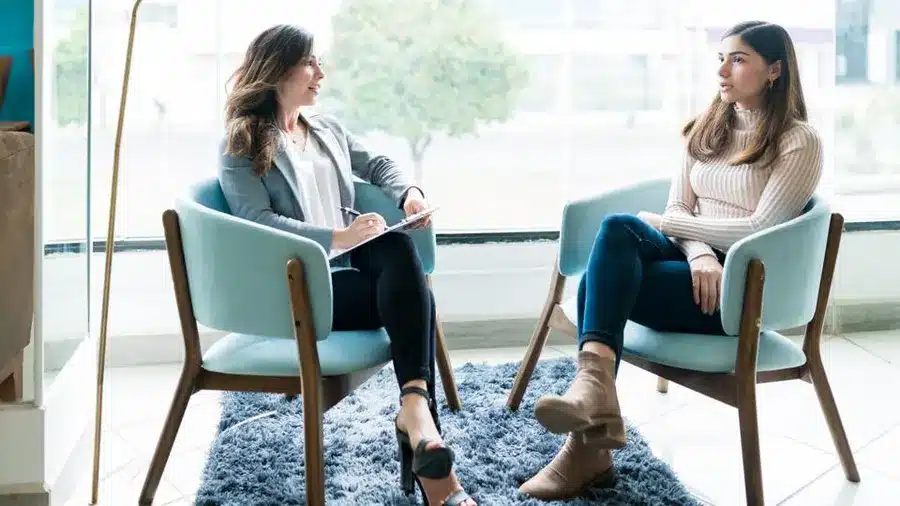
Facing a Limb Loss or Amputation: How Counselling Can Help
The decision to undergo an amputation is rarely easy. Whether it’s due to a medical condition, an injury, or another reason, facing the prospect of limb loss can bring about a whirlwind of emotions.
It’s completely normal to feel anxious, scared, overwhelmed, and even grief-stricken. At Disability Plus, we understand the complex journey you’re about to embark on, and our specialised counselling services can provide invaluable support during this challenging time.
Preparing for the Emotional and Psychological Impact
While your medical team focuses on your physical health and the surgical aspects of amputation, counselling addresses the emotional and psychological impact of this life-altering decision. We provide a safe and supportive space for you to:
- Process Your Emotions: Explore the full range of emotions you’re experiencing, including fear, sadness, anger, and anxiety.
- Understand the Changes: Gain a deeper understanding of the physical and emotional changes you can expect after the amputation.
- Develop Coping Mechanisms: Learn practical strategies for managing anxiety, stress, and difficult emotions.
- Address Concerns: Discuss specific concerns or fears about the surgery, recovery, or life after amputation.
- Build Resilience: Develop the emotional resilience needed to navigate the challenges ahead.
- Make Informed Decisions: Counselling can help you feel more empowered and informed as you decide about your treatment and recovery.
Addressing Specific Concerns
Counselling can help you address specific concerns related to your upcoming amputation, such as:
Body Image: Explore how your body image might be affected and develop strategies for building self-esteem.
Phantom Limb Pain: Learn about phantom limb pain and discuss potential coping mechanisms.
Functional Changes: Prepare for changes in your physical abilities and explore ways to adapt to daily life.
Relationships: Discuss how your relationships with family, friends, and partners might be impacted and how to communicate effectively.
Social and Occupational Concerns: Address concerns about social situations, returning to work, or participating in activities you enjoy.
Our Approach
Our counsellors understand the unique challenges of facing limb loss or amputation. We use a variety of therapeutic approaches, including Cognitive Behavioural Therapy (CBT), Acceptance and Commitment Therapy (ACT), and other evidence-based practices, to help you process your emotions, develop coping skills, and build resilience.
We provide compassionate and nonjudgmental support, empowering you to navigate this difficult transition with greater confidence and resilience. We recognise that everyone’s journey is different and tailor our approach to meet your individual needs and goals.

What to Expect from Limb Loss Counselling
Our specialised counselling service can support you on your journey with an amputation, whether your loss is recent, anticipated, or something you’ve been living with for some time. Living with limb loss or after an amputation brings unique challenges, and we’re here to walk alongside you, offering professional expertise and, crucially, the understanding that comes from lived experience.
From the moment you reach out, we aim to create a safe and supportive space for you. We know sharing your experiences and vulnerabilities can be difficult, so our initial sessions focus on building trust and rapport.
Our counsellors deeply understand limb loss, including the emotional and practical adjustments required. Critically, all our counsellors have experienced limb loss themselves through both medical issues and personal injuries.
They truly understand what you’re going through because they’ve been there. Their journeys offer hope and inspiration, demonstrating that a fulfilling life is possible despite the challenges. For those anticipating or recently experienced an amputation, our counsellors without lived experience have specialised training and a deep understanding of the process, ensuring compassionate and practical support.
We’ll work together to understand your specific needs and goals, whether you are dealing with a recent limb loss, preparing for an amputation, or have been living with limb loss for years.
We’ll also take the time to learn about your background, the circumstances surrounding your limb loss or anticipated amputation, your medical history (specifically related to your limb difference or anticipated amputation), your current emotional well-being, and any challenges you’re facing. This comprehensive assessment will allow us to create a personalised counselling plan for you.
Our approach to counselling is grounded in evidence-based practices. We use proven therapies, such as Cognitive Behavioural Therapy (CBT) and Acceptance and Commitment Therapy (ACT), to help you develop coping skills, manage your emotions effectively, and build resilience.
We’ll explore the root causes of any challenges you’re experiencing, whether it’s depression, anxiety, body image concerns, grief related to the loss or amputation (or anticipated loss), phantom limb pain, relationship difficulties, or social isolation.
We’ll also focus on practical strategies for improving your daily life. This might involve learning pain management techniques (for phantom limb pain or residual limb pain), exploring ways to maximise the use of your prosthetics or adaptive devices, developing skills to advocate for your accessibility needs, improving your communication and social skills, or supporting you in pursuing vocational or educational goals.
Drawing on their experience and specialised training, our counsellors can share practical tips and strategies and offer valuable insights and support.
One of the most powerful aspects of our service is the peer support element inherent in working with a counsellor who has experienced limb loss or amputation. They understand the nuances of living with limb loss or after an amputation in a way that others may not.
This shared understanding can be incredibly validating and can reduce feelings of isolation. Our counsellors serve as role models, demonstrating that a fulfilling life is possible despite the challenges.
A deep understanding of the limb loss journey provides similar empathy and support.
Our support doesn’t end after a few sessions. We’re here for the long haul. Ongoing counselling sessions provide continued support, allow us to adjust your plan as needed, and help you reinforce your coping skills.
We’ll also help you develop strategies for managing potential setbacks and connect you with other resources within the limb loss community.
Our goal is to empower you to live your best life. We want to help you build confidence, develop self-advocacy skills, and navigate life more resiliently.
We believe in your strength and potential and are here to support you every step of the way.

Navigating Daily Triggers After Limb Loss
Limb Loss Counselling can help you navigate the daily life triggers that can impact your well-being after limb loss or amputation. We understand that even with effective coping strategies, daily life can present challenges that stir up difficult emotions. We aim to help you develop the tools and resilience to manage these triggers and live a more fulfilling life.
We’ll work together to identify your specific triggers. Everyone’s experience with an amputation is unique, so it’s essential to understand what specifically affects you. These triggers might be physical, like phantom limb pain or discomfort in the residual limb; emotional, like memories of the amputation or feelings of loss; or social, like interactions with others who stare or make insensitive comments. Some common examples include:
Physical Triggers:
- Phantom limb sensations (pain, itching, tingling)
- Discomfort or pain in the residual limb
- Difficulties with prosthetics (fit, function, appearance)
- Changes in physical abilities and limitations
- Medical appointments or procedures related to your limb loss
- These can trigger frustration, vulnerability, or grief for the lost limb.
Emotional Triggers:
- Anniversaries of your amputation or limb loss
- Seeing others engage in activities you used to enjoy
- Thoughts about the future and how your life has changed
- Feelings of self-consciousness or body image concerns
- Changes in relationships or social interactions
These can bring up feelings of sadness, anger, anxiety, or isolation.
Social Triggers:
- Staring or insensitive comments from others
- Difficulty navigating inaccessible environments
- Feeling excluded from social activities or feeling different
- Questions or assumptions about your abilities
- These can lead to feelings of frustration, anger, or self-consciousness.
Counselling provides a safe space to explore these triggers without judgment. We’ll help you understand how these triggers affect you emotionally and physically. We’ll also work together to develop specific coping strategies for each trigger type. This might involve:
Developing Awareness: By becoming more aware of what situations or events will likely trigger complex emotions, you can prepare yourself mentally and emotionally.
Building Coping Skills: Learning practical skills like relaxation techniques (deep breathing, mindfulness), cognitive restructuring (challenging negative thoughts), and problem-solving strategies. These tools can help you manage your emotional responses in the moment.
Creating a Plan: Develop a plan for how to respond to triggers effectively. This might involve avoiding certain situations, having a support person you can call, or using a specific coping skill when you feel overwhelmed.
Acceptance and Adaptation: You may need to accept that some triggers are unavoidable. Counselling can help you embrace this reality and focus on adapting to the ongoing challenges of living with limb loss. The aim isn’t to eliminate all triggers but to manage their impact on your life. Our counsellors with limb loss experience this and can offer valuable insights.
Reframing Thoughts: Learning to reframe negative thoughts associated with triggers. For example, instead of thinking, “I’ll never be able to do that again,” you might learn to think, “I can explore different ways to achieve a similar goal”, or “I can focus on the things I can still do and enjoy.”
Building Resilience: Developing resilience is the ability to bounce back from challenges. Counselling can help you identify and build on your strengths to handle difficult situations better.
Our counsellors with limb loss understand these triggers firsthand. Based on their own experiences, they can offer practical advice and emotional support. This peer support element is invaluable as it provides a sense of validation and reduces feelings of isolation.
Ultimately, counselling is about empowering you. We want to help you develop the skills and confidence to navigate the daily challenges of living with limb loss and live a meaningful and fulfilling life. We’re here to support you every step of the way.


New Limb Loss
Losing a limb is a life-altering event that presents numerous challenges, both physically and emotionally.
Individuals may grapple with physical pain, limitations in mobility and daily activities, and the need to adapt to prosthetics or other assistive devices.
The loss of a limb can also significantly impact body image and self-esteem, leading to feelings of grief, anxiety, and depression.
Many amputees experience phantom limb pain and sensations, which can be distressing and difficult to manage. Furthermore, they may face social stigma and discrimination, impacting their relationships and sense of belonging.
Recognising that adjusting to limb loss differs for everyone is crucial, and the emotional impact can be profound.
Specialist limb loss mental health counselling provides a safe and supportive space for amputees to process their experiences, address their emotional challenges, and develop coping strategies.
Counsellors with lived experience of limb loss offer unique empathy and understanding, helping clients navigate feelings of grief, loss, and trauma.
Therapy can help individuals adjust to their new reality, rebuild their self-esteem, and develop a positive body image.
It can also equip them with tools to manage phantom limb pain, cope with social challenges, and foster resilience. By addressing the psychological impact of amputation, specialist counselling empowers individuals to live whole and meaningful lives, embracing their new normal with confidence and hope.

Qualified Mental Health Limb Loss Counselling Service
When you choose our service, you’re choosing expertise and quality. All our psychotherapists are BACP registered, meaning they meet the rigorous standards set by the British Association for Counselling and Psychotherapy. This ensures they have the qualifications, skills, and experience to provide safe and ethical therapeutic support.
Furthermore, our therapists have years of experience in the counselling field. They have honed their skills through extensive practice, ongoing professional development, and a deep commitment to helping clients navigate life’s challenges.
This combination of professional accreditation and practical experience makes them uniquely qualified to support you on your journey to well-being.
Here’s what you can expect from our BACP-registered psychotherapists:
- Ethical Practice: They adhere to a strict code of ethics, ensuring confidentiality, respect, and your best interests are at the heart of their practice.
- Evidence-Based Approaches: They use proven therapeutic methods to address your needs and goals.
- Ongoing Development: They continually update their knowledge and skills to provide the most effective support possible.
- Clinical Supervision: They engage in regular clinical supervision to ensure the quality and safety of their practice.
With our team of experienced and qualified professionals, you can be confident that you’re receiving the highest standard of mental health care.

Mental Health
We understand that the impact of limb loss extends far beyond the physical. It can trigger a rollercoaster of emotions and challenges to mental well-being, often as a direct result of the amputation itself. The sudden change in body image, the loss of function, and the adjustments to a new way of life can be overwhelming.
It’s essential to recognise that these mental health struggles are not a sign of weakness but a natural response to a significant life event. They are part of the healing process and can be navigated successfully with proper support.
Our specialist service acknowledges the intricate link between limb loss and mental health. We understand that the healing journey involves addressing physical and emotional challenges. Our therapists, having journeyed through limb loss, are uniquely equipped to guide you through this process.
Click the buttons to the right to explore how limb loss can impact mental health and discover how our specialist service can provide the support you need to thrive.
These are Typical Mental Health Issues we Support People with:
Ableism?
Ableism, or discrimination against people with disabilities, can significantly affect the mental health of those with limb loss.
Limb loss counselling is crucial in helping individuals navigate these challenges.
Ableism can appear in many forms, creating barriers in various areas of life. For example, individuals with limb loss may face discrimination in employment, inadequate support in education, and difficulty accessing healthcare or suitable housing.
These experiences can lead to stress, anxiety, and depression.
Limb loss counselling provides a safe space to process these emotions and develop coping mechanisms.
It helps individuals build self-advocacy skills, challenge systemic issues, and foster resilience.
By addressing the impact of ableism, limb loss counselling empowers individuals to navigate their challenges and live fulfilling lives.
Phantom Limb Loss?
Phantom limb sensation is a common experience after amputation, where individuals perceive sensations, including pain, in the missing limb.
This can manifest as itching, tingling, warmth, or intense shooting pains, causing significant distress and impacting daily life, sleep, and emotional well-being.
Phantom limb pain can also complicate the process of adapting to limb loss and engaging in rehabilitation.
Limb loss counselling provides valuable support in managing phantom limb sensations.
Therapists can teach coping strategies such as relaxation techniques, cognitive reframing, and mirror therapy to help individuals manage pain and reduce its emotional impact.
Counselling also offers a supportive space to address the emotional challenges associated with phantom limb pain, improve body image, and facilitate a smoother rehabilitation process.
Perceptions?
The way people perceive limb loss can significantly impact the lives of amputees.
Misconceptions and lack of understanding can create barriers to accessing appropriate social services and employment opportunities and navigating education and healthcare.
These misperceptions can lead to discrimination, inadequate support, and lowered expectations, which can impact self-esteem, financial stability, and overall well-being.
Social isolation and stigma can also arise from these negative perceptions, hindering social inclusion and contributing to mental health challenges.
Limb loss counselling provides a crucial space for individuals to address the emotional and psychological impact of these experiences.
It helps amputees develop coping mechanisms, build resilience, and advocate for their needs.
By challenging societal perceptions and fostering understanding, limb loss counselling empowers individuals to navigate their challenges and live fulfilling lives.
Health?
Health anxiety is a common experience for individuals with limb loss.
The process of adapting to amputation, managing physical changes, and navigating rehabilitation can trigger worries about future health, complications, and overall well-being.
Concerns about phantom limb pain, prosthetic fit, and potential medical issues can contribute to heightened anxiety.
Limb loss counselling provides specialised support in addressing these anxieties.
Therapists help individuals develop coping strategies, navigate challenges in accessing healthcare, and build resilience for managing uncertainties.
By addressing health anxiety, limb loss counselling empowers amputees to focus on their recovery and improve their quality of life.
Loss of Autonomy
Loss of autonomy is a significant concern for many individuals with limb loss, impacting their mental health and overall well-being.
This loss can stem from physical limitations, challenges with mobility, and societal barriers restricting independence.
Limb loss counselling plays a crucial role in helping individuals cope with this loss and reclaim a sense of control over their lives.
Limb loss counselling provides a supportive space to address the emotional impact of dependence on others for daily tasks, challenges in decision-making, and limitations in social or professional participation.
Therapists can help individuals develop coping strategies, enhance self-advocacy skills, and explore new avenues for independence.
By addressing the loss of autonomy, limb loss counselling empowers individuals to navigate their challenges, build resilience, and live fulfilling lives.
Financial Strain
Financial strain is a significant concern for many individuals with limb loss, impacting their mental health and overall well-being.
The costs associated with amputation, prosthetics, rehabilitation, and ongoing medical care can be substantial, leading to chronic stress and anxiety.
Limb loss counselling provides valuable support in navigating these financial challenges.
Therapists can offer strategies for managing financial stress, coping with the emotional impact of unexpected expenses, and advocating for financial assistance or affordable care.
By addressing financial concerns, limb loss counselling helps individuals focus on their recovery, reduce stress, and improve their quality of life.
Anxiety?
Anxiety is a common experience for many individuals with limb loss.
The challenges of adapting to amputation, navigating rehabilitation, and managing physical and emotional changes can contribute to heightened anxiety levels.
Limb loss counselling is crucial in helping individuals cope with these anxieties and improve their overall well-being.
Limb loss counselling provides a safe and supportive space to address anxieties related to various aspects of life after amputation.
This can include concerns about body image, social interactions, employment, finances, and accessing healthcare.
Therapists can help individuals develop coping strategies, build resilience, and improve self-advocacy skills.
By addressing anxiety, limb loss counselling empowers individuals to focus on their recovery, adjust to their new reality, and live fulfilling lives.
Depression?
Depression is a significant concern for many individuals with limb loss.
Adapting to life after amputation involves navigating numerous challenges, both physical and emotional, which can contribute to feelings of sadness, hopelessness, and a loss of interest in life.
These challenges may include coping with phantom limb pain, adjusting to prosthetic use, facing changes in body image, and navigating social and professional adjustments.
Several factors can increase the risk of depression in the context of limb loss.
These include difficulties with mobility, challenges in accessing appropriate healthcare and support services, financial strain, and experiences of social isolation or stigma.
The emotional impact of limb loss, including grief, anxiety, and trauma, can also contribute to depression.
Limb loss counselling provides a safe and supportive space to address depression and its underlying causes.
Therapists help individuals process their emotions, develop coping strategies, and build resilience.
They can also assist in connecting with resources, improving self-esteem, and fostering social connections.
By addressing depression, limb loss counselling empowers individuals to improve their mental health and overall well-being.
Relationships?
Limb loss can significantly impact relationships, affecting both the individual with the amputation and their loved ones.
Adjusting to life after limb loss often involves navigating changes in body image, physical abilities, and emotional well-being, which can influence dynamics within relationships.
Partners, family members, and friends may experience a range of emotions, including worry, sadness, and uncertainty, as they adapt to these changes alongside the individual.
Communication plays a crucial role in navigating relationships after limb loss. Open and honest conversations about needs, concerns, and expectations can help maintain healthy connections and foster mutual understanding.
Intimacy can also be affected by limb loss, and addressing changes in physical intimacy and emotional connection is essential for maintaining strong and fulfilling relationships.
Limb loss counselling can provide valuable support for individuals and their loved ones in navigating relationship challenges.
Therapists can help individuals communicate effectively, address intimacy concerns, and strengthen bonds with their partners, family, and friends.
They can also offer guidance on navigating social situations, building new relationships, and fostering a supportive network.
Limb loss counselling addresses relationship concerns and helps individuals maintain strong connections and build fulfilling relationships after amputation.
Carers?
Caring for a loved one with limb loss can be an enriching experience, but it also comes with unique challenges that can impact a carer’s well-being.
Carers often face emotional strain as they witness their loved ones navigate the physical and emotional challenges of amputation.
The physical demands of assisting with daily tasks and medical appointments can lead to exhaustion, while caregiving responsibilities may limit social interaction and contribute to feelings of isolation.
Financial concerns and relationship dynamics changes can add further complexity to the carer’s experience.
Limb loss counselling offers valuable support to carers facing these challenges.
It provides a safe and supportive space to process emotions such as worry, sadness, and even secondary trauma.
Therapists can offer practical guidance on caregiving techniques, navigating resources, and managing the daily demands of caring for someone with limb loss.
They can also connect carers with respite care options, allowing for essential breaks and self-care.
Furthermore, limb loss counselling can help carers navigate relationship changes and maintain healthy communication with their loved ones.
Support groups provide opportunities to connect with others facing similar challenges, fostering a sense of community and shared understanding.
Limb loss counselling addresses the unique needs of carers, helping them maintain their own well-being, strengthen their relationships, and provide the best possible support to their loved ones.
Adjustment Disorder?
Adjustment disorder is a common reaction to stressful life events, and for individuals with limb loss, the significant changes associated with amputation can trigger this condition.
Adjusting to a new physical reality, coping with emotional challenges, and navigating social and practical adjustments can feel overwhelming, leading to symptoms like anxiety, depression, and difficulty dealing with daily life.
Adjustment disorder after limb loss can manifest in various ways. Individuals may experience low mood, irritability, withdrawal from social activities, sleep disturbances, and difficulty concentrating.
These symptoms can significantly impact their quality of life and interfere with their ability to rehabilitate and adapt to their new circumstances.
Limb loss counselling provides essential support for individuals experiencing adjustment disorder.
Therapists can help individuals understand and process their emotions, develop coping strategies for managing stress and anxiety, and build resilience for navigating the challenges of limb loss.
They can also help connect with support networks and resources to facilitate a smoother adjustment process.
By addressing adjustment disorder, limb loss counselling helps individuals regain a sense of control, improve their emotional well-being, and successfully adapt to life after amputation.
Grief/Loss?
Grief is a natural and complex response to loss, and for individuals with limb loss, this grief can be particularly profound.
The loss of a limb represents not only a physical loss but also a loss of function, identity, and the life one knew before.
This can trigger a range of intense emotions, including sadness, anger, denial, and yearning.
The grieving process for individuals with limb loss is unique and personal.
It can be influenced by factors such as the cause of limb loss, the level of amputation, the individual’s support system, and their coping mechanisms.
Grief may manifest in different ways, including physical symptoms like fatigue and sleep disturbances, emotional changes like mood swings and irritability, and cognitive difficulties like concentration problems and memory loss.
Limb loss counselling provides a safe and supportive environment for individuals to navigate their grief journey.
Therapists can help individuals understand and process their emotions, develop healthy coping strategies, and find meaning and acceptance in their new reality.
They can also assist in addressing any unresolved trauma related to limb loss and facilitate the process of rebuilding a fulfilling life after amputation.
Trauma?
Trauma is a common experience for individuals with limb loss, as the event leading to amputation can be physically and emotionally shocking.
This can include accidents, injuries, surgeries, or medical conditions requiring amputation.
Such events can leave a lasting impact on a person’s mental and emotional well-being, leading to symptoms like flashbacks, nightmares, anxiety, and avoidance.
The experience of trauma can vary significantly from person to person.
Factors such as the nature of the event, the individual’s coping mechanisms, and their support system can influence the severity and duration of traumatic symptoms.
It’s essential to recognise that trauma can manifest in different ways, including physical symptoms like hypervigilance and sleep disturbances, emotional changes like fear and anger, and cognitive difficulties like concentration problems and intrusive thoughts.
Limb loss counselling provides a safe and supportive space for individuals to address trauma related to their amputation.
Trauma-informed therapists can help individuals process their experiences, develop coping strategies for managing triggers and flashbacks, and work through feelings of fear, guilt, or shame.
By addressing trauma, limb loss counselling helps individuals heal from the past, reduce distress, and move forward with their lives.
Free Funding Application For Specialist Limb Loss Counselling
Living with a complex disability can often bring extra financial pressures. At DisabilityPlus, we understand this. We support clients and GPs across England and Wales, aiming to provide access to free counselling and offer crucial support during challenging times.
Read About The Proccess of a Funding Application
1 – Referral: Start by completing our simple referral form below. We’ll review your information to determine your eligibility for NHS funding.
2—Questionnaire: If you are eligible, we will send you a questionnaire to learn more about your disability and its impact on your daily life. This will help us gather essential information beforehand, making your assessment session more efficient.
3—Assessment Session: A therapist who shares your disability will conduct a video call assessment. This information and your completed questionnaire will allow us to create a comprehensive report for your GP.
4 – Application to NHS: We then submit this report to your GP, who needs to support this application; we recommend that you make an appointment with your GP to ensure your doctor approves the application.
5 – Your doctor forwards it to the mental health commissioners in your area for review.
6—Decision: The NHS makes funding decisions on a case-by-case basis. The average wait time is 12 weeks, but it can be shorter (8 weeks) or longer, depending on your GP’s processing time.
DisabilityPlus does not guarantee that any application will be successful; however, we are supported by most NHS regions in England and Wales for Spinal Cord Injury Counselling.
When you self-refer we will contact you and let you know if a funding application is possible.

Testimonials: Finding Strength and Hope After Limb Loss
These stories highlight the transformative power of limb loss counselling. Individuals facing various types of amputation share their journeys of adaptation, resilience, and healing. They offer powerful examples of how specialised support can empower those with limb loss to embrace their new reality, overcome challenges, and live fulfilling lives.
Read their inspiring stories and discover the potential for positive change through limb loss counselling.
Foot Amputation – Michael, 22: “After my foot amputation, I feared I’d never play football again. Counselling showed me how to harness my passion in new ways and inspired me to mentor young athletes with disabilities.”
Climber – Ellie, 26: “Climbing was more than a hobby for me; it was a way of life. After losing my leg in a climbing accident, I thought I’d never find joy again. Counselling played a crucial role in my recovery, helping me navigate the avalanche of emotions and challenges that followed my accident. It gave me strategies to adapt and continue pursuing my passion in new ways.”
Multiple Limb Loss – Alex, 29: “Losing more than one limb felt like an insurmountable obstacle. However, the support and guidance I received through counselling have been invaluable. It’s helped me to adapt, find new ways to be independent, and embrace life with positivity.”
Arm Amputation – James, 34: “After losing my arm in an accident, I felt as if my world had collapsed. Counselling helped me rebuild my life piece by piece. It taught me to accept my new reality and find the strength I never knew I had. I’m now back to doing things I love, differently but confidently.”
Below-Knee Amputation – George, 55, and daughter Emily: “As a father and grandfather, I wanted to remain active in my family’s life. Counselling, alongside Emily’s support, has been instrumental in adapting to my below-knee amputation.
Leg Amputation – Sarah, 45, and her husband Mark: “Sarah’s leg amputation was a challenging time for both of us. As her primary carer, I felt overwhelmed. The counselling sessions offered us hope. Together, we’ve navigated the complexities of this new life. It’s been a journey of rediscovery and mutual support.”
Police Officer, 40: “Being a policeman, I was accustomed to facing danger head-on. However, nothing could have prepared me for the emotional and physical challenges of losing a leg in the line of duty. The counselling sessions provided me with a safe space to process my feelings of loss, anger, and frustration. They also equipped me with strategies to cope with my new reality”
Partial Hand Loss – Anita, 38: “Counselling after my partial hand loss was a turning point. It helped me understand adaptive techniques, proving that creativity knows no boundaries.”

Real Stories, Real Lives, Real Impact, Lived Experience Matters
Specialist Limb Loss Counselling, Therapists Amputees
Facing limb loss, whether it’s an upcoming amputation, recent surgery, or years of living as an amputee, can bring a range of emotions.
You don’t have to navigate this alone. Our limb loss counselling services are here to support you at every stage.
Our team of experienced counsellors who also have an amputation understands your unique challenges and is here to provide compassionate care and guidance.
"The journey after limb loss is unique to each individual.
We will help you embrace your resilience, discover new ways to thrive, and let you know that you're not alone."
Take the first step towards a brighter future.
What makes us specialist:
♥ Counsellors & Psychotherapists with Limb Loss
♥ Team of Registered BACP & BPS Therapists
♥ Free Funding Applications (most regions England & Wales)
♥ Self-Paid, Start Counselling within Seven Working Days
♥ Professional Organisation Referrals from GPs, Mental Health Providers, Charities and Schools
We are a Team that Understands what it’s like Living with an Amputation.
Lived Experience Matters
Quick Navigation Guide
This webpage is your comprehensive guide to limb loss counselling topics. We’ve designed it to be easy to navigate so you can quickly find the information you need.
Click on the button corresponding to the section you’re interested in, and you’ll be transported directly to that content. It’s that simple!
We Are Specialists, Explore Why
Mental Health Support, How?
Newly Acquired Limb Loss Support?
Self-Paid Pricing & Referral Form
Free Funding Referral Form
All GP, NHS & Organisation Referrals
Contact us if you cannot find what you are looking for

Facing a Limb Loss or Amputation: How Counselling Can Help
The decision to undergo an amputation is rarely easy. Whether it’s due to a medical condition, an injury, or another reason, facing the prospect of limb loss can bring about a whirlwind of emotions.
It’s completely normal to feel anxious, scared, overwhelmed, and even grief-stricken.
Read More:
At Disability Plus, we understand the complex journey you’re about to embark on. Our specialised counselling services can provide invaluable support during this challenging time.
Preparing for the Emotional and Psychological Impact
While your medical team focuses on your physical health and the surgical aspects of amputation, counselling addresses the emotional and psychological impact of this life-altering decision.
We provide a safe and supportive space for you to:
Process Your Emotions: Explore the full range of emotions you’re experiencing, including fear, sadness, anger, and anxiety.
Understand the Changes: Gain a deeper understanding of the physical and emotional changes you can expect after the amputation.
Develop Coping Mechanisms: Learn practical strategies for managing anxiety, stress, and difficult emotions.
Address Concerns: Discuss specific concerns or fears about the surgery, recovery, or life after amputation.
Build Resilience: Develop the emotional resilience needed to navigate the challenges ahead.
Make Informed Decisions: Counselling can help you feel more empowered and informed as you decide about your treatment and recovery.
Addressing Specific Concerns
Counselling can help you address specific concerns related to your upcoming amputation, such as:
Body Image: Explore how your body image might be affected and develop strategies for building self-esteem.
Phantom Limb Pain: Learn about phantom limb pain and discuss potential coping mechanisms.
Functional Changes: Prepare for changes in your physical abilities and explore ways to adapt to daily life.
Relationships: Discuss how your relationships with family, friends, and partners might be impacted and how to communicate effectively.
Social and Occupational Concerns: Address concerns about social situations, returning to work, or participating in activities you enjoy.
Our Approach
Our counsellors understand the unique challenges of facing limb loss or amputation. We use a variety of therapeutic approaches, including Cognitive Behavioural Therapy (CBT), Acceptance and Commitment Therapy (ACT), and other evidence-based practices, to help you process your emotions, develop coping skills, and build resilience.
We provide compassionate, nonjudgmental support, empowering you to navigate this difficult transition with greater confidence and resilience. Because everyone’s journey differs, we tailor our approach to meet your needs and goals.

Navigating Daily Triggers After Limb Loss
Daily triggers after limb loss can disrupt your well-being. We help you build resilience and manage these challenges.
Identify Your Triggers: Physical, emotional, or social, we pinpoint what affects you.
Develop Coping Strategies: Learn practical skills like mindfulness and positive reframing.
Build Resilience: Adapt, accept, and thrive, focusing on what you can do.
Peer Support: Our counselors with limb loss offer unique understanding and validation.
We empower you to navigate daily life and live a fulfilling life.

What to Expect from Limb Loss Counselling
Limb Loss Counselling: Expert Support, Lived Experience.
We offer specialised counselling for all stages of amputation, providing professional expertise and crucial understanding from lived experience.
Safe & Supportive Space: We build trust and understand your unique journey.
Experienced Counsellors: Our team includes those with personal limb loss experience, offering unparalleled empathy and hope.
Personalised Plans: We address your needs using proven CBT and ACT therapies.
Practical Strategies: We help with pain management, prosthetic use, advocacy, and social skills.
Peer Support & Validation: Our counsellors’ lived experience reduces isolation and inspires resilience.
Ongoing Support: We’re committed to your long-term well-being, helping you build confidence and navigate life’s challenges.

New Limb Loss
Losing a limb is a life-altering event that presents numerous challenges, both physically and emotionally.
Individuals may grapple with physical pain, limitations in mobility and daily activities, and the need to adapt to prosthetics or other assistive devices.
The loss of a limb can also significantly impact body image and self-esteem, leading to feelings of grief, anxiety, and depression.
Many amputees experience phantom limb pain and sensations, which can be distressing and difficult to manage. Furthermore, they may face social stigma and discrimination, impacting their relationships and sense of belonging.
Recognising that adjusting to limb loss differs for everyone is crucial, and the emotional impact can be profound.
Specialist limb loss mental health counselling provides a safe and supportive space for amputees to process their experiences, address their emotional challenges, and develop coping strategies.
Counsellors with lived experience of limb loss offer unique empathy and understanding, helping clients navigate feelings of grief, loss, and trauma.
Therapy can help individuals adjust to their new reality, rebuild their self-esteem, and develop a positive body image.
It can also equip them with tools to manage phantom limb pain, cope with social challenges, and foster resilience. By addressing the psychological impact of amputation, specialist counselling empowers individuals to live whole and meaningful lives, embracing their new normal with confidence and hope.

Free Funding Option & Referral Form
Living with a complex disability can often bring extra financial pressures.
At DisabilityPlus, we understand this.
We support clients and GPs across England and Wales, aiming to provide access to free counselling and offer crucial support during challenging times.
The Funding Process:
1—Referral: Please complete the simple referral form below.
We’ll then review your information to determine your eligibility for funding.
2—Questionnaire: If you are eligible, we will send you a questionnaire to learn more about your disability and its impact on your daily life.
This will help us gather essential information beforehand, making your assessment session more efficient.
3—Assessment Session:
A therapist who shares your disability will conduct a video call or telephone assessment.
This information and your completed questionnaire will allow us to create a comprehensive report for your GP.
4 – Decision: The NHS makes funding decisions on a case-by-case basis, and the average wait time is 12 weeks.
While it can be shorter (8 weeks), it may also take longer, depending on your GP’s processing time.
If you do not live in an area that supports DisabilityPlus or your circumstances do not fit within your NHS area funding criteria, we will inform you immediately.
We also offer self-paid counselling if this is an option for you.
Self-paid counselling is also available for the interim period between the application and funding approval.
Even when we apply, we cannot guarantee funding approval, as the NHS makes decisions on a case-by-case basis.
Please get in touch with us if you want more information.

Specialist Limb Loss Mental Health: Lived Experience, Deep Healing
Our therapists’ personal limb loss experience makes us unique, offering unparalleled empathy and practical support.
Deep Understanding: Firsthand experience validates your journey and builds trust.
Practical Insights: Real-world guidance on healthcare, prosthetics, and daily life.
Resilience Role Models: Our therapists show thriving after limb loss is possible.
Reduced Stigma: Safe space for vulnerability, fostering acceptance.
We connect you with therapists who “get it,” enabling more profound healing and empowered living.
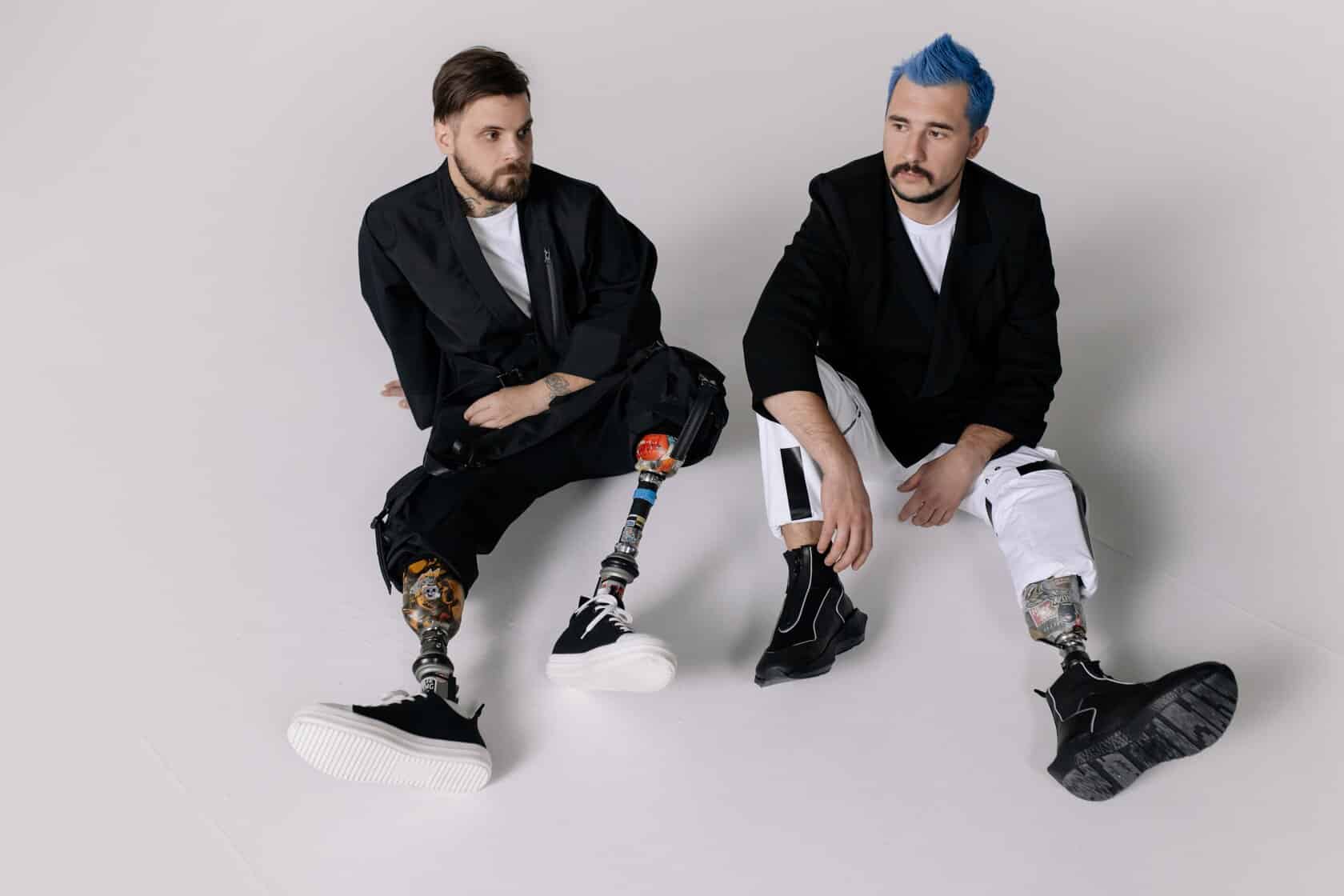
Mental Health
We understand that the impact of limb loss extends far beyond the physical.
It can trigger a rollercoaster of emotions and challenges to mental well-being, often as a direct result of the amputation itself.
The sudden change in body image, the loss of function, and the adjustments to a new way of life can be overwhelming.
It’s essential to recognise that these mental health struggles are not a sign of weakness but a natural response to a significant life event.
They are part of the healing process and can be navigated successfully with proper support.
Our specialist service acknowledges the intricate link between limb loss and mental health.
We understand that the healing journey involves addressing physical and emotional challenges.
Our therapists, having journeyed through limb loss, are uniquely equipped to guide you through this process.
Click the buttons below to explore how limb loss can impact mental health and discover how our specialist service can provide the support you need to thrive.
Grief/Loss?
Grief is a natural and complex response to loss, and for individuals with limb loss, this grief can be particularly profound.
The loss of a limb represents not only a physical loss but also a loss of function, identity, and the life one knew before.
This can trigger a range of intense emotions, including sadness, anger, denial, and yearning.
The grieving process for individuals with limb loss is unique and personal.
It can be influenced by factors such as the cause of limb loss, the level of amputation, the individual’s support system, and their coping mechanisms.
Grief may manifest in different ways, including physical symptoms like fatigue and sleep disturbances, emotional changes like mood swings and irritability, and cognitive difficulties like concentration problems and memory loss.
Limb loss counselling provides a safe and supportive environment for individuals to navigate their grief journey.
Therapists can help individuals understand and process their emotions, develop healthy coping strategies, and find meaning and acceptance in their new reality.
They can also assist in addressing any unresolved trauma related to limb loss and facilitate the process of rebuilding a fulfilling life after amputation.
Trauma?
Trauma is a common experience for individuals with limb loss, as the event leading to amputation can be physically and emotionally shocking.
This can include accidents, injuries, surgeries, or medical conditions requiring amputation.
Such events can leave a lasting impact on a person’s mental and emotional well-being, leading to symptoms like flashbacks, nightmares, anxiety, and avoidance.
The experience of trauma can vary significantly from person to person.
Factors such as the nature of the event, the individual’s coping mechanisms, and their support system can influence the severity and duration of traumatic symptoms.
It’s essential to recognise that trauma can manifest in different ways, including physical symptoms like hypervigilance and sleep disturbances, emotional changes like fear and anger, and cognitive difficulties like concentration problems and intrusive thoughts.
Limb loss counselling provides a safe and supportive space for individuals to address trauma related to their amputation.
Trauma-informed therapists can help individuals process their experiences, develop coping strategies for managing triggers and flashbacks, and work through feelings of fear, guilt, or shame.
By addressing trauma, limb loss counselling helps individuals heal from the past, reduce distress, and move forward with their lives.
Ableism?
Ableism, or discrimination against people with disabilities, can significantly affect the mental health of those with limb loss.
Limb loss counselling is crucial in helping individuals navigate these challenges.
Ableism can appear in many forms, creating barriers in various areas of life. For example, individuals with limb loss may face discrimination in employment, inadequate support in education, and difficulty accessing healthcare or suitable housing.
These experiences can lead to stress, anxiety, and depression.
Limb loss counselling provides a safe space to process these emotions and develop coping mechanisms.
It helps individuals build self-advocacy skills, challenge systemic issues, and foster resilience.
By addressing the impact of ableism, limb loss counselling empowers individuals to navigate their challenges and live fulfilling lives.
Phantom Limb Loss?
Phantom limb sensation is a common experience after amputation, where individuals perceive sensations, including pain, in the missing limb.
This can manifest as itching, tingling, warmth, or intense shooting pains, causing significant distress and impacting daily life, sleep, and emotional well-being.
Phantom limb pain can also complicate the process of adapting to limb loss and engaging in rehabilitation.
Limb loss counselling provides valuable support in managing phantom limb sensations.
Therapists can teach coping strategies such as relaxation techniques, cognitive reframing, and mirror therapy to help individuals manage pain and reduce its emotional impact.
Counselling also offers a supportive space to address the emotional challenges associated with phantom limb pain, improve body image, and facilitate a smoother rehabilitation process.
Perceptions?
The way people perceive limb loss can significantly impact the lives of amputees.
Misconceptions and lack of understanding can create barriers to accessing appropriate social services and employment opportunities and navigating education and healthcare.
These misperceptions can lead to discrimination, inadequate support, and lowered expectations, which can impact self-esteem, financial stability, and overall well-being.
Social isolation and stigma can also arise from these negative perceptions, hindering social inclusion and contributing to mental health challenges.
Limb loss counselling provides a crucial space for individuals to address the emotional and psychological impact of these experiences.
It helps amputees develop coping mechanisms, build resilience, and advocate for their needs.
By challenging societal perceptions and fostering understanding, limb loss counselling empowers individuals to navigate their challenges and live fulfilling lives.
Health?
Health anxiety is a common experience for individuals with limb loss.
The process of adapting to amputation, managing physical changes, and navigating rehabilitation can trigger worries about future health, complications, and overall well-being.
Concerns about phantom limb pain, prosthetic fit, and potential medical issues can contribute to heightened anxiety.
Limb loss counselling provides specialised support in addressing these anxieties.
Therapists help individuals develop coping strategies, navigate challenges in accessing healthcare, and build resilience for managing uncertainties.
By addressing health anxiety, limb loss counselling empowers amputees to focus on their recovery and improve their quality of life.
Loss of Autonomy
Loss of autonomy is a significant concern for many individuals with limb loss, impacting their mental health and overall well-being.
This loss can stem from physical limitations, challenges with mobility, and societal barriers restricting independence.
Limb loss counselling plays a crucial role in helping individuals cope with this loss and reclaim a sense of control over their lives.
Limb loss counselling provides a supportive space to address the emotional impact of dependence on others for daily tasks, challenges in decision-making, and limitations in social or professional participation.
Therapists can help individuals develop coping strategies, enhance self-advocacy skills, and explore new avenues for independence.
By addressing the loss of autonomy, limb loss counselling empowers individuals to navigate their challenges, build resilience, and live fulfilling lives.
Financial Strain
Financial strain is a significant concern for many individuals with limb loss, impacting their mental health and overall well-being.
The costs associated with amputation, prosthetics, rehabilitation, and ongoing medical care can be substantial, leading to chronic stress and anxiety.
Limb loss counselling provides valuable support in navigating these financial challenges.
Therapists can offer strategies for managing financial stress, coping with the emotional impact of unexpected expenses, and advocating for financial assistance or affordable care.
By addressing financial concerns, limb loss counselling helps individuals focus on their recovery, reduce stress, and improve their quality of life.
Anxiety?
Anxiety is a common experience for many individuals with limb loss.
The challenges of adapting to amputation, navigating rehabilitation, and managing physical and emotional changes can contribute to heightened anxiety levels.
Limb loss counselling is crucial in helping individuals cope with these anxieties and improve their overall well-being.
Limb loss counselling provides a safe and supportive space to address anxieties related to various aspects of life after amputation.
This can include concerns about body image, social interactions, employment, finances, and accessing healthcare.
Therapists can help individuals develop coping strategies, build resilience, and improve self-advocacy skills.
By addressing anxiety, limb loss counselling empowers individuals to focus on their recovery, adjust to their new reality, and live fulfilling lives.
Depression?
Depression is a significant concern for many individuals with limb loss.
Adapting to life after amputation involves navigating numerous challenges, both physical and emotional, which can contribute to feelings of sadness, hopelessness, and a loss of interest in life.
These challenges may include coping with phantom limb pain, adjusting to prosthetic use, facing changes in body image, and navigating social and professional adjustments.
Several factors can increase the risk of depression in the context of limb loss.
These include difficulties with mobility, challenges in accessing appropriate healthcare and support services, financial strain, and experiences of social isolation or stigma.
The emotional impact of limb loss, including grief, anxiety, and trauma, can also contribute to depression.
Limb loss counselling provides a safe and supportive space to address depression and its underlying causes.
Therapists help individuals process their emotions, develop coping strategies, and build resilience.
They can also assist in connecting with resources, improving self-esteem, and fostering social connections.
By addressing depression, limb loss counselling empowers individuals to improve their mental health and overall well-being.
Relationships?
Limb loss can significantly impact relationships, affecting both the individual with the amputation and their loved ones.
Adjusting to life after limb loss often involves navigating changes in body image, physical abilities, and emotional well-being, which can influence dynamics within relationships.
Partners, family members, and friends may experience a range of emotions, including worry, sadness, and uncertainty, as they adapt to these changes alongside the individual.
Communication plays a crucial role in navigating relationships after limb loss. Open and honest conversations about needs, concerns, and expectations can help maintain healthy connections and foster mutual understanding.
Intimacy can also be affected by limb loss, and addressing changes in physical intimacy and emotional connection is essential for maintaining strong and fulfilling relationships.
Limb loss counselling can provide valuable support for individuals and their loved ones in navigating relationship challenges.
Therapists can help individuals communicate effectively, address intimacy concerns, and strengthen bonds with their partners, family, and friends.
They can also offer guidance on navigating social situations, building new relationships, and fostering a supportive network.
Limb loss counselling addresses relationship concerns and helps individuals maintain strong connections and build fulfilling relationships after amputation.
Carers?
Caring for a loved one with limb loss can be an enriching experience, but it also comes with unique challenges that can impact a carer’s well-being.
Carers often face emotional strain as they witness their loved ones navigate the physical and emotional challenges of amputation.
The physical demands of assisting with daily tasks and medical appointments can lead to exhaustion, while caregiving responsibilities may limit social interaction and contribute to feelings of isolation.
Financial concerns and relationship dynamics changes can add further complexity to the carer’s experience.
Limb loss counselling offers valuable support to carers facing these challenges.
It provides a safe and supportive space to process emotions such as worry, sadness, and even secondary trauma.
Therapists can offer practical guidance on caregiving techniques, navigating resources, and managing the daily demands of caring for someone with limb loss.
They can also connect carers with respite care options, allowing for essential breaks and self-care.
Furthermore, limb loss counselling can help carers navigate relationship changes and maintain healthy communication with their loved ones.
Support groups provide opportunities to connect with others facing similar challenges, fostering a sense of community and shared understanding.
Limb loss counselling addresses the unique needs of carers, helping them maintain their own well-being, strengthen their relationships, and provide the best possible support to their loved ones.
Adjustment Disorder?
Adjustment disorder is a common reaction to stressful life events, and for individuals with limb loss, the significant changes associated with amputation can trigger this condition.
Adjusting to a new physical reality, coping with emotional challenges, and navigating social and practical adjustments can feel overwhelming, leading to symptoms like anxiety, depression, and difficulty dealing with daily life.
Adjustment disorder after limb loss can manifest in various ways. Individuals may experience low mood, irritability, withdrawal from social activities, sleep disturbances, and difficulty concentrating.
These symptoms can significantly impact their quality of life and interfere with their ability to rehabilitate and adapt to their new circumstances.
Limb loss counselling provides essential support for individuals experiencing adjustment disorder.
Therapists can help individuals understand and process their emotions, develop coping strategies for managing stress and anxiety, and build resilience for navigating the challenges of limb loss.
They can also help connect with support networks and resources to facilitate a smoother adjustment process.
By addressing adjustment disorder, limb loss counselling helps individuals regain a sense of control, improve their emotional well-being, and successfully adapt to life after amputation.

Qualified Limb Loss Mental Health Counselling: Expert Care You Can Trust
Our BACP registered psychotherapists offer expert, ethical support, ensuring your well-being.
BACP Accreditation: Rigorous standards guarantee qualified, safe, and ethical therapy.
Experienced Professionals: Years of practice and ongoing development ensure adequate support.
Evidence-Based Methods: Proven therapies tailored to your specific needs.
Ethical & Supervised: Confidential, respectful care with ongoing quality assurance.
Receive the highest standard of mental health care with our trusted team.

Our Clients’ Voices: Real Stories, Real Impact
These testimonials and success stories illuminate the deeply transformative power of limb loss counselling.
They underscore the significant potential for positive change, growth, and resilience in individuals who have experienced all forms of limb loss.
Each account offers a unique perspective on the journey of adaptation and recovery, reflecting the varied challenges of losing a limb, whether through accident, illness, or medical necessity.
Through these stories, we see the transformative impact that empathetic, informed support can have on enhancing the quality of life, fostering a renewed sense of self, and enabling individuals to navigate their new realities with confidence and hope.
Foot Amputation – Michael, 22: “After my foot amputation, I feared I’d never play football again. Counselling showed me how to harness my passion in new ways and inspired me to mentor young athletes with disabilities.”
Climber – Ellie, 26: “Climbing was more than a hobby for me; it was a way of life. After losing my leg in a climbing accident, I thought I’d never find joy again.
Counselling played a crucial role in my recovery, helping me navigate the avalanche of emotions and challenges that followed my accident. It gave me strategies to adapt and continue pursuing my passion in new ways.”
Multiple Limb Loss – Alex, 29: “Losing more than one limb felt like an insurmountable obstacle. However, the support and guidance I received through counselling have been invaluable.
It’s helped me to adapt, find new ways to be independent, and embrace life with positivity.”
Arm Amputation – James, 34: “After losing my arm in an accident, I felt as if my world had collapsed. Counselling helped me rebuild my life piece by piece.
It taught me to accept my new reality and find the strength I never knew I had. I’m now back to doing things I love, differently but confidently.”
Below-Knee Amputation – George, 55, and daughter Emily: “As a father and grandfather, I wanted to remain active in my family’s life. Counselling, alongside Emily’s support, has been instrumental in adapting to my below-knee amputation.
Leg Amputation – Sarah, 45, and her husband Mark: “Sarah’s leg amputation was a challenging time for both of us. As her primary carer, I felt overwhelmed.
The counselling sessions offered us hope. Together, we’ve navigated the complexities of this new life. It’s been a journey of rediscovery and mutual support.”
Police Officer, 40: “Being a policeman, I was accustomed to facing danger head-on. However, nothing could have prepared me for the emotional and physical challenges of losing a leg in the line of duty.
The counselling sessions provided me with a safe space to process my feelings of loss, anger, and frustration. They also equipped me with strategies to cope with my new reality”
Partial Hand Loss – Anita, 38: “Counselling after my partial hand loss was a turning point. It helped me understand adaptive techniques, proving that creativity knows no boundaries.”

Mobile
01932881849
The Amputation Foundation
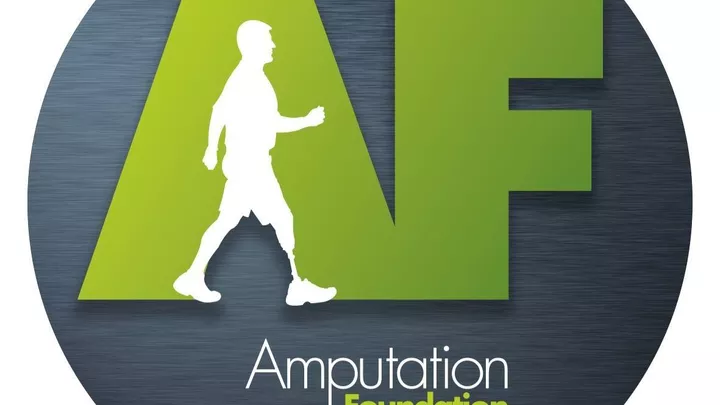
The Amputation Foundation is a unique charity that assists amputees and medical professionals in their work to give new amputees the best start following amputation.
The Amputation Foundation can assist amputees with many of their support needs and provide information relevant to starting a new life as an amputee, which will include benefits information, legal information, prosthetic centre advice and information, education and retraining and much more.
Amputation Foundation will continue to support these people with their needs moving forward through rehabilitation and retraining for future employment and sports and hobbies, which may require adaptations or specialist-inclusive activities.
DisabilityPlus support the Amputation Society with Amputation Counselling.
The Amputation Foundation

The Amputation Foundation is a unique charity that assists amputees and medical professionals in their work to give new amputees the best start following amputation.
The Amputation Foundation can assist amputees with many of their support needs and provide information relevant to starting a new life as an amputee, which will include benefits information, legal information, prosthetic centre advice and information, education and retraining and much more.
Amputation Foundation will continue to support these people with their needs moving forward through rehabilitation and retraining for future employment and sports and hobbies, which may require adaptations or specialist-inclusive activities.
DisabilityPlus support the Amputation Society with Amputation Counselling.
Find the Right Support for Your Journey
At DisabilityPlus, we understand that every individual’s mental health journey is unique. That’s why we offer comprehensive counselling services designed to cater to your specific needs.
Click & Select your counselling service
